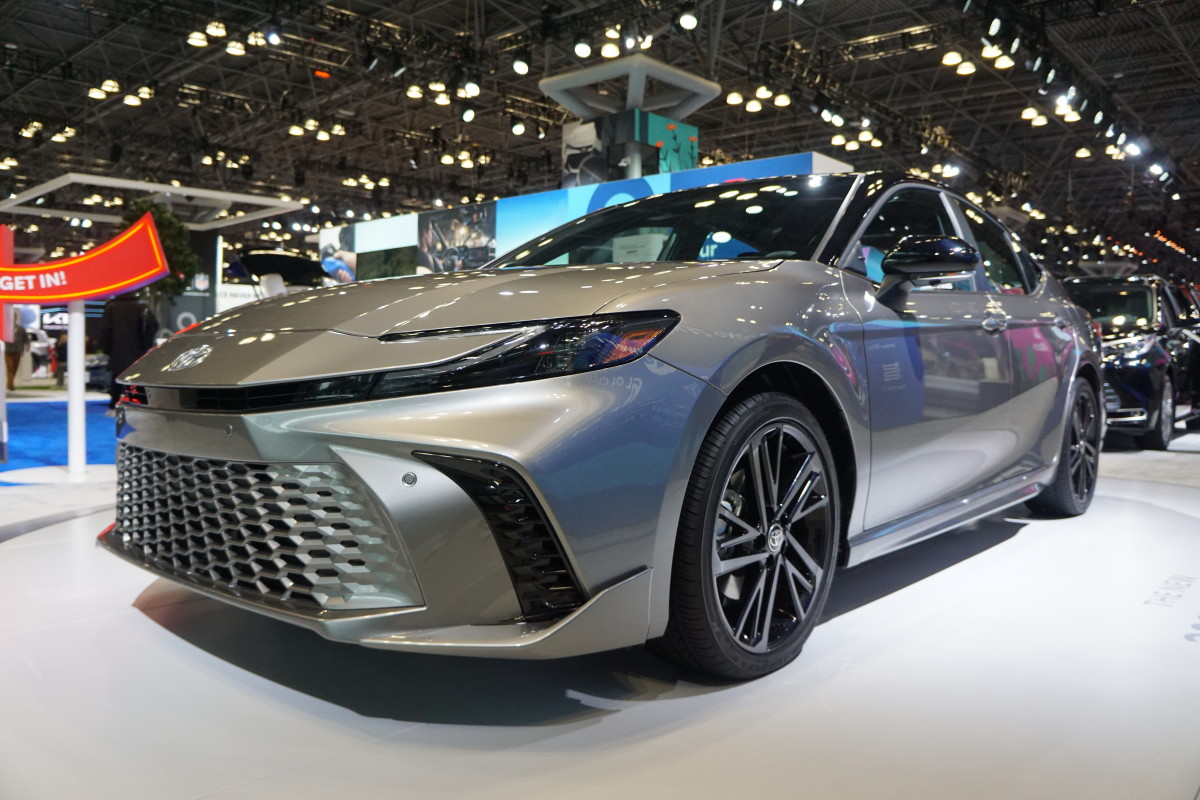
Japanese automaker Toyota (TM) is one of the world's top-selling and most trusted automakers. Still, the company is notoriously lagging in selling fully electric vehicles.
While rivals like General Motors, Kia, and Hyundai are slowly rolling out a buffet-style selection of different electric vehicles for American consumers, Toyota has just one electric vehicle in its lineup: the bZ4X crossover SUV.
In a January 2024 company event, Toyota chairman Akio Toyoda explained why he and the automaker hesitated to invest in electric vehicles.
Related: Trump and Musk's union-busting joke wasn't funny to the UAW
Toyoda predicted that BEVs (battery-electric vehicles) would only capture a maximum of 30% of the automotive market share, arguing that they require a set of infrastructure that not all customers are able to access.
He predicted that the other 70% would consist of hybrids, fuel cell electric vehicles, hydrogen-powered cars, and traditional engine-powered cars, noting that "this is something that customers and the market will decide, not regulatory values or political power."
According to Kelley Blue Book and Cox Automotive data, over 1.2 million EVs hit the streets last year, representing just a 7.6% market share in 2023.
Though EV sales are slowing down compared to years prior, Toyota is planning a massive attack on an electrified car segment that is commanding consumer demand.

Toyota's big bet could pay off
According to Toyota executives who spoke to Reuters, the automaker plans to make a huge bet on gas-powered hybrid vehicles.
The brand known for cult models like the Prius and hybrid versions of popular nameplates like the Corolla and RAV4, is planning to turn most, if not all, of its gasoline-powered nameplates into models solely offered with hybrid powertrains across its Toyota and Lexus brands.
Toyota's strong preference for hybrids over EVs is a mighty challenge to the sentiment of government officials and the greater auto industry, which believe that all cars of the future will be electric.
In an interview, Toyota North America sales and marketing head David Christ told Reuters that the automaker's new models will be scrutinized for their viability to become hybrids.
More Business of EVs:
- Porsche and Mercedes diverge at EV crossroads
- A Fisker-type problem is affecting an automaker known for quality
- Police officer pulls over Waymo robotaxi, is greeted by no driver or passengers
Already, most of Toyota's lineup is either a hybrid or can be ordered with a powertrain. With this plan in place, Toyota must determine whether it wants to continue to sell non-hybrid versions of its cars.
"Going forward, we plan to evaluate, car line by car line, whether going all-hybrid makes sense," Christ told Reuters.
One particular target for being hybrid-only is the RAV4 crossover SUV. According to data from Kelley Blue Book, the RAV4 is the top-selling Toyota and was the fourth best-selling car last year, moving 434,943 units to driveways across the nation.
The RAV4 is due for a major makeover for the 2026 model year. Two people familiar with Toyota's product planning discussions told Reuters that the automaker will likely make the crossover solely a hybrid in North America.
The brand has already converted a very popular model to solely hybrid powertrains. For the 2025 model year, Toyota made a controversial decision to convert KBB's eighth best-seller, the Camry sedan, to solely hybrid powertrains.

James Ochoa
Hybrids and regulations
Toyota's strategy of making hybrid powertrains the sole engine choice for gas-powered cars aims to strengthen its position in a market that is seeing a comeback amid slowing EV sales.
While EVs need to be charged at charging stations filled with "charger hogs," hybrids like the Toyota Prius can be filled up at the gas station down the street.
With its impressive mileage figures of up to 57 miles per gallon, the Prius and Toyota's other hybrids make trips to the gas station far less frequent and more importantly, keeps the Toyota brand in line with tougher EPA carbon-emissions regulations.
Katsuhiko Hirose, a former Toyota global powertrain planning manager and current visiting professor at Kyushu University told Reuters that Toyota's way of weaning the general public onto hybrids will give the brand more time to perfect its battery-electric vehicle technologies.
Related: BMW's clever, new EV app is a privacy nightmare
"(Hybrids) will buy them more time and give Toyota flexibility over how fast and how many EVs they'd have to roll out," Hirose said. "They wouldn't feel pinned against the wall to produce EVs."
Dollars and sense
Additionally, hybrids require less research and development commitment and raw materials than EVs; costs that are transferred to the consumer.
According to an internal Toyota document shared to its U.S. dealer network that was viewed by Jalopnik, Toyota corporate body explained that its hesitation toward EVs is based on the lack of EV charging infrastructure, affordability and most importantly, a finite amount of critical resources like lithium, cobalt, nickel and graphite.
The bigwigs explained something they called the 1:6:90 rule, where considering the amount of raw materials needed for the battery in one battery-electric vehicle designed for Americans' range anxiety, six plug-in hybrid batteries could be made or 90 batteries for hybrid-electric vehicles like the Prius or Camry.
"For the same limited resources, instead of replacing one internal-combustion engine, you can replace 90," the Toyota executives said.
"The overall carbon reduction of these 90 vehicles over their lifetimes is 37 times as much as a single battery-electic vehicle."
Toyota Motor Co., which trades on the New York Stock Exchange as TM, is up 2.93% from the opening bell today, trading at $182.14 at the time of writing.
Related: Veteran fund manager picks favorite stocks for 2024







